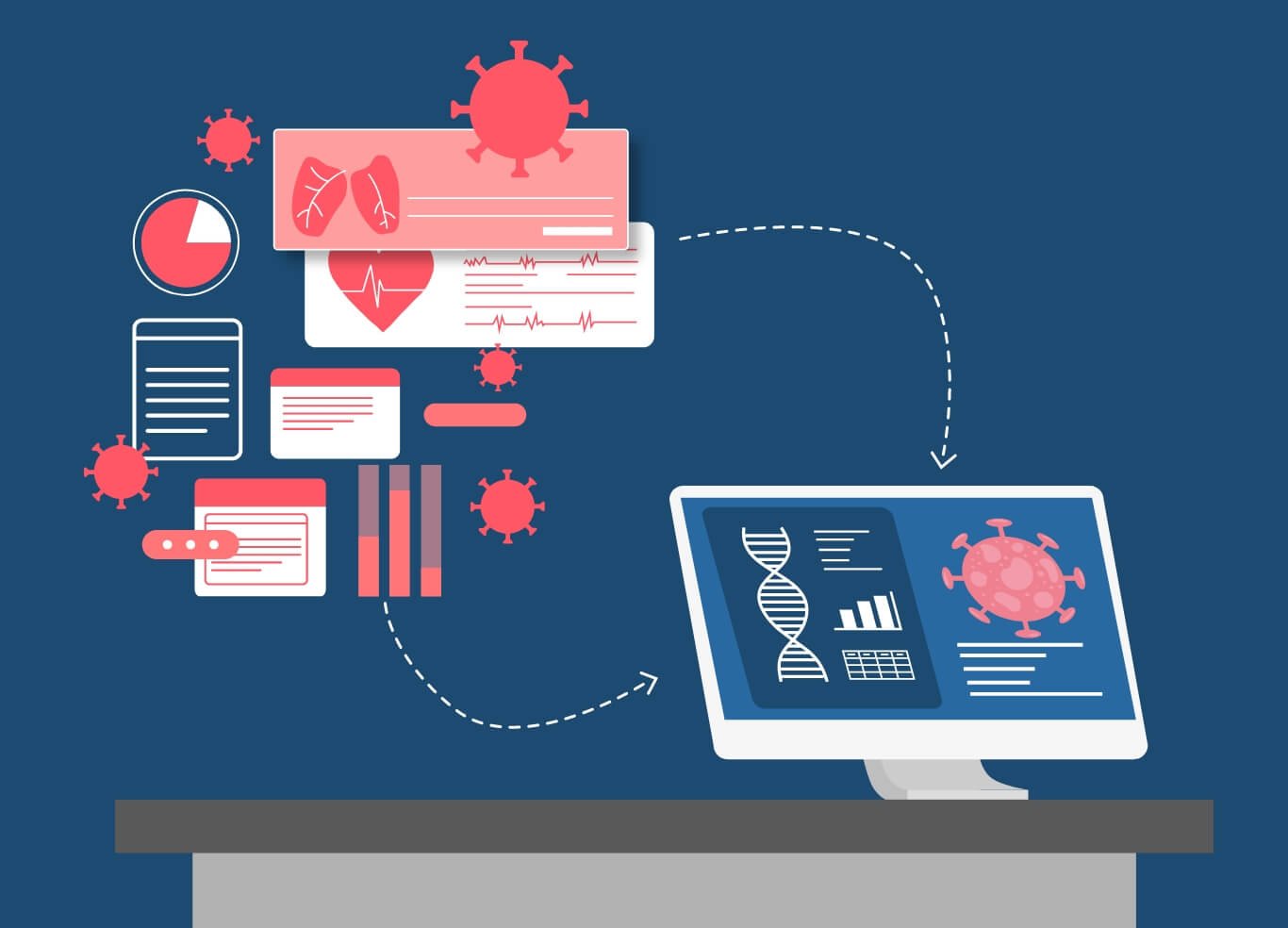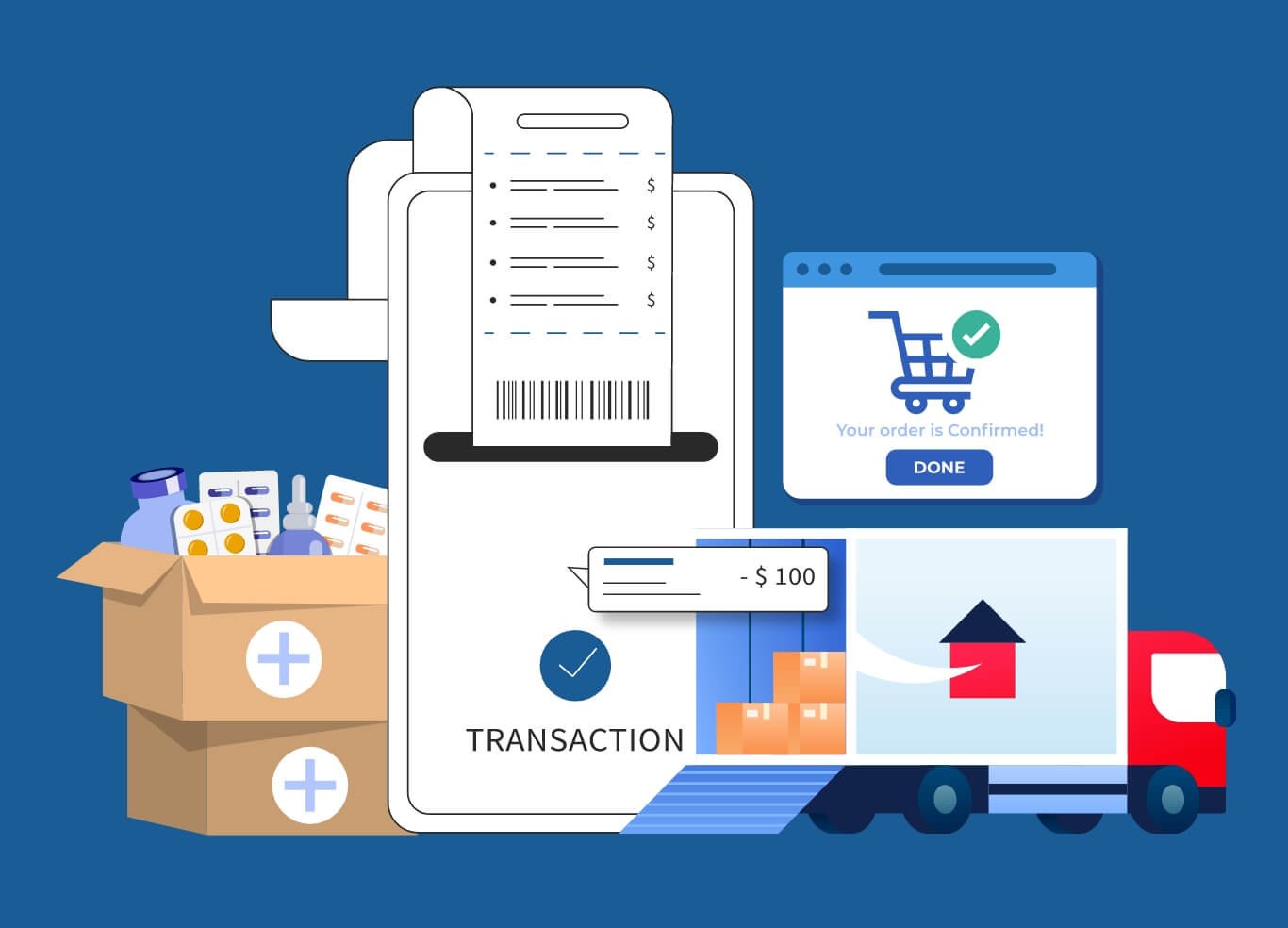It’s been over five years since the world suffered from the COVID-19 pandemic. It is a traumatic time for every individual, business, and the entire economy. The pandemic caused huge losses and chaos, but we have now recovered from it. Many sectors of the economy faced challenges and have suffered due to the deadly disease. As the world returned to a new normal, businesses across various industries recognized the importance of embracing digital transformation. Due to the pandemic, the digitization process quickly became a valuable approach for companies to deal with the new normal. This also impacted the daily operations and processes of companies, ensuring seamless coordination that offers desired results. A variety of sectors were affected and also leveraged the new approach of digitization. Among many, the healthcare industry has focused on transforming to digital health solutions, considering the significant impact of COVID-19.
Moreover, the pandemic pushed the world toward a more digital approach that enhances operations, facilitates quick data retrieval, streamlines workflows, and more. Similarly, digital health solutions were revolutionary, as well as strategic approaches in the healthcare sector. With the rise of digitization, a massive amount of data has been generated in various formats. Becoming a tedious challenge for healthcare professionals to handle data, digital solutions were quite a savior approach. Managing patient records, medical reports, and administrative tasks was transformed from a traditional to a digital approach after the pandemic. Traditional paper systems were becoming an obstacle for healthcare experts, which was also concerning patient care. Therefore, the digitization of medical records offers a variety of advantages, improving the accessibility of information without requiring the review of multiple paper files.
The healthcare sector is vast, comprising a diverse range of branches. To ensure streamlined operations, focus on patient care, and have immediate access to medical records, data digitization has become a crucial and comprehensive approach in medical centers and hospitals. Enabling professionals to free up from the tedious task of paper records management. In fact, continuing the traditional process in the digital era, especially after COVID-19, presents challenges, as paper files can be easily misplaced, destroyed in natural calamities or accidents, deteriorate due to age, and suffer from mismanagement of large paper records, resulting in a slow pace for medical attention and more.
After the world survived the pandemic, the healthcare industry transformed into a digital working approach in order to attain a new normal. This also eased the process and improved patient care, offering seamless accessibility to medical records stored in databases. Discover how medical data conversion solutions are revolutionary and strategic ways that enhanced the healthcare realm after five years of the pandemic.
Enhance Healthcare Operations with Data Digitization Solutions
Understanding Healthcare Data Digitization
The COVID-19 pandemic was deadly and traumatic for everyone, considering the chaos, change in lives, and more. Looking on the positive side, the pandemic has prompted the world to transition dynamically from a traditional to a digital approach. Today, after five years of living and adjusting to a new normal, every sector has adopted a digitalization approach. Every industry in the economy now functionally operates with the help of digital solutions by adopting the method of data digitization. Among various sectors, the healthcare sector experienced rapid acceleration following the pandemic. As data is a primary resource for success and thriving in the competitive market, healthcare data entry services have offered escalated services and improved patient care.
From electronic health records to apps that showcase the health and healthcare landscape, the field has come a long way. Focusing on the massive data generated through various means, medical professionals face challenges in accessing the right records. Traditional file management systems not only delayed patients’ treatment but also caused inefficiency in daily operations. This brought attention to digitization of medical records, which became a non-negotiable shift in the industry after the pandemic. Unlike paper records, digital medical databases offer easy accessibility, maintenance, security, and quick transfer of information. The following are key features of electronic health records in the medical sector.
- Analytics capabilities
- Centralized storage
- Interoperability
- Security and privacy
- Real-time updates
Replacing traditional methods, especially in the post-COVID healthcare landscape, has witnessed a tremendous change for the better. Moreover, securing medical records digitally is integrated with HIPAA compliance, as medical data is sensitive in nature. Following the impact of COVID-19, managing patient records, having the correct medical file, and treating patients precisely have all improved. Moreover, digital advancements in the industry have improved coordination, leading to enhanced medical care. Explore the key benefits of data digitization in the healthcare sector after COVID-19.
Benefits of Healthcare Data Digitization
As discussed briefly in the role of digitizing medical data also brings a variety of benefits. From boosting efficiency to reducing the risk of errors, medical data conversion solutions provide a solid foundation that has given the sector a new face.
Perks of Data Digitization in Healthcare
Seamless access to medical details
Reduced medication errors
Streamlined workflows
Improved care
Accurate medical documentation
Enhanced security measures
Improved billing and medical insurance
- Seamless access to medical details: The digitization of medical records enables healthcare professionals to access a patient’s complete medical history via digital solutions. This digital process became vital during the COVID-19 pandemic to provide healthcare experts with updated information for informed decisions. Moreover, this also introduced EMR (Electronic Medical Records), where all records are secured and accessed by authorized personnel.
- Improved care: With digitized medical records, medical experts can clearly understand the patient’s condition through access to past medical records, test results, medical readings, and more. This reduces the scope of misunderstanding and accelerates the treatment process for patients, offering attentive medical attention.
- Reduced medication errors: Data digitization of healthcare records helps to identify potential drug interactions, allergies, and duplicate prescriptions. This significantly reduces medication errors and offers precise treatment and medical processes while enhancing patient safety.
- Accurate medical documentation: Electronic health records (EHR) provide standardized templates and automated fields, ensuring more complete and precise documentation. This minimizes the risk of missing critical information that could impact patient outcomes.
- Streamlined workflows: Eliminating traditional paper record systems enhances daily operations. This ensures that healthcare staff, such as nurses, assistants, and administrative professionals, can focus on improving patient care apart from filing paper records or storing them.
- Improved billing and medical insurance: Healthcare digitization in administrative tasks is beneficial for a variety of reasons. It allows a patient’s family to receive all the billing and other medical invoices seamlessly while claiming health insurance.
- Enhanced security measures: Digital records in the healthcare landscape are protected by acute security protocols, including encryption, access controls, and audit logs, ensuring patient confidentiality and preventing unauthorized access. Additionally, medical facilities follow GDPR and HIPAA compliance digital realm.
These are key perks of healthcare digitization that enable professionals to enhance patient care while having access to digital medical records. As a solid foundation, it has become a critical step in upscaling the industry and improving patient care. However, implementing digital solutions in a massive sector isn’t an easy job. It demands specialized skills, the use of technology, and a strategic approach to apply digitization in such a vast and complex sector efficiently. Although beneficial, digital implementation also presents its fair share of challenges. Here are some of the common challenges that may arise, along with key solutions.
Common Challenges in Data Digitization for Healthcare and Its Solution
Implementation of a digital outlook in the healthcare sector is beneficial in a variety of ways. However, it also comes with many challenges that can hinder the transformation from traditional to digital. Digitization of medical records holds sensitive information, which is crucial to manage and secure. On the other hand, digital transformation in healthcare typically faces obstacles such as data security, the use of technology, and the adoption of new processes, among others. The following are key challenges, along with solutions to overcome them.
Challenges and Solutions for Digitization in Healthcare
Data security and privacy concerns
Resistant to change or adoption
High-cost investment
Data quality and standardization
- Data security and privacy concerns
It is one of the major obstacles the healthcare sector faces, as it is a landscape prone to major cyber attacks. Therefore, it becomes evident that protecting sensitive data requires laws, privacy regulations, and security measures.
Solution: The challenge is concerning, as medical data privacy is a top priority for the healthcare industry, which follows security measures such as encryption, password-protected files, and integration of HIPAA compliance, among others. This ensures the protection of sensitive medical data and private patient information. - High-cost investment
Digital transformation in the healthcare sector requires massive initial investments, including software, training, resources, advanced infrastructure, and more. Hospitals or clinics restrict investment at once.
Solution: Investment cost isn’t a significant challenge; however, for medical facilities that seek a strategic approach, it is recommended to initially invest in cloud-based solutions that are easy to use and enhance medical document storage. Further training existing resources with new technologies can also help in improving the process of digital transformation.
- Resistant to change or adoption
Healthcare professionals are accustomed to traditional work approaches and may be reluctant to adopt new strategies or technologies. Resistance to change can be a significant challenge and may lead to inefficient workflows in medical facilities.
Solution: This challenge can be resolved through proper training and offering digital literacy, which brings improved results. Moreover, communication can also help mitigate resistance to change by discussing the benefits of data digitization, reduced administrative processes, and other advantages. - Data quality and standardization
Another significant challenge is ensuring data quality and standardization, which is hindered by incomplete medical records, varying formats, and data stored in different formats. This makes it difficult to leverage the power of medical data and may hinder decision-making.
Solution: setting standardized data protocols by implementing clear guidelines and building automated validation rules in EHRs that prevent incomplete or incorrect data feed. Practicing data cleansing to remove duplication or erroneous content.
These are key challenges and solutions to overcome them. Proactively addressing the challenges with mentioned solutions or strategic approaches can help healthcare organizations to leverage the power of medical data digitization. This also enables more efficient, secure, patient-focused, and seamless workflow in the medical facility. The impact of COVID-19 brought uncertain times, but it has also pushed the healthcare sector to transform digitally.
As a matter of fact, this digital push has upscaled the efficiency of the sector, improved patient care, and offered a streamlined approach to accessing medical records. In today’s digitally evolved era, telehealth, telemedicine, Fitbits, health trackers, and more such devices have been widely used, enabling patients to track basic medical aspects. These advancements have enabled patients to stay informed and improve their health with the guidance of precise medical professionals. Additionally, medical facilities and healthcare providers are primarily focused on the core task of treating and caring for patients. It is advisable to outsource healthcare data digitization to a reliable firm that can accurately and efficiently digitize medical records with security and precision.
Outsourcing Healthcare Data Entry Services
Due to the rapid growth of digital transformation, especially after the pandemic, outsourcing data digitization services have seen a significant rise. As businesses and other various sectors have a plethora of roles, outsourcing data entry services has become a savior approach. Speaking of the healthcare landscape is vast, consisting of numerous data formats and files, with a primary focus on patient care. Outsourcing by medical data digitization companies is a significant approach. Outsourcing service providers have a team of experts who are well-versed in the processes, utilize advanced technology, ensure data security, deliver accurate solutions, and more, all without consuming significant time.
As a matter of fact, data entry experts can precisely manage bulk medical records, ensuring efficiency and accuracy. However, partnering with the right data management firm is evident to leverage the benefits of outsourcing solutions. Uniquesdata is a renowned data digitization company with significant years of experience. The team at Uniquesdata ensures precision and high quality and has experience in various sectors. Partnering with the Uniquesdata team offers a variety of benefits, such as;
- Cost-effective solution
- Free trial
- Dedicated team
- Experienced resource
- Use of the latest technology
- Top-notch quality
- Industrial experience
- Range of data digitization solutions
Ending Thoughts
Data digitization of medical records plays a pivotal role in escalating healthcare services. It ensures the precise management of sensitive information and facilitates a seamless workflow in medical facilities. Moreover, it enables healthcare professionals to enhance patient care, provide timely treatment, and streamline administrative tasks.



